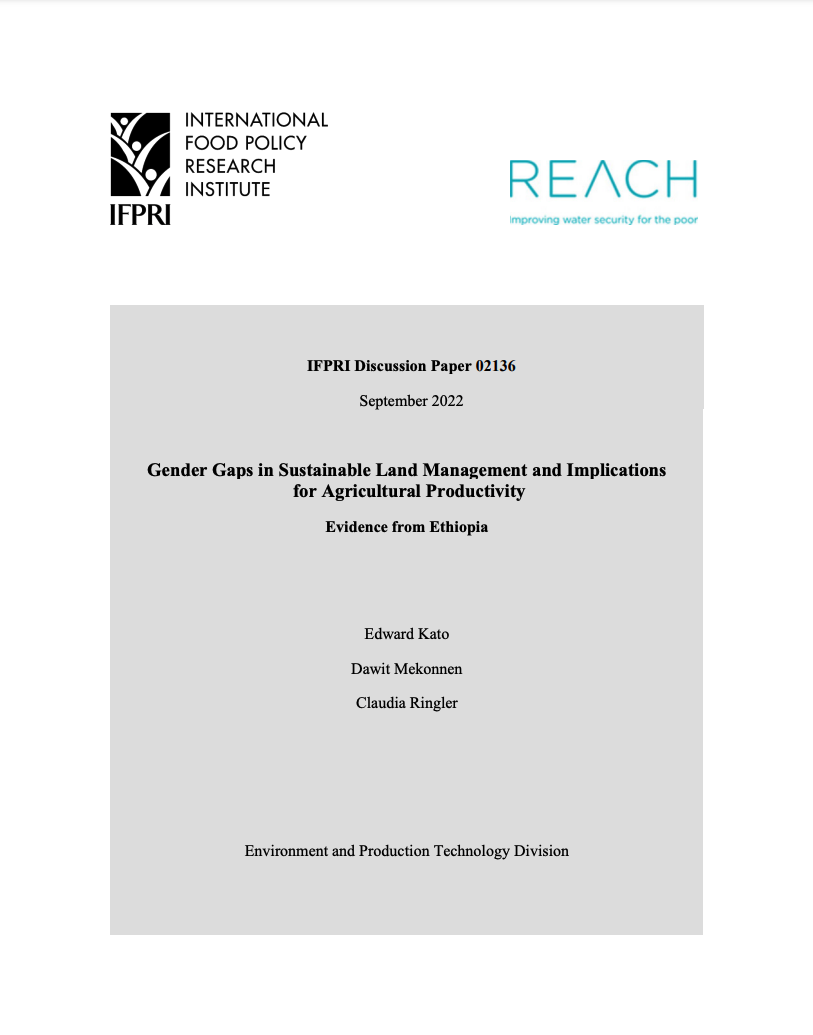Authors: Edward Kato, Dawit Kelemework Mekonnen & Claudia Ringler.
We investigate whether a large-scale watershed program promoting sustainable land management (SLM) in Ethiopia increases adoption of SLM and its benefits on plots owned by women in male-headed households compared to plots owned by their spouses, jointly owned plots as well as plots of female headed households (FHH). The analysis is based on a survey of 500 households and 2900 plots conducted in the Abbay basin of Ethiopia where the SLM program was implemented between 2012 and 2017. Our findings show that the SLM program significantly increased adoption of SLM practices (soil bunds, stone terraces, mulching) in male-headed households but that adoption was centered on jointly owned plots and male-owned plots, with no significant adoption on women-owned plots. The results also show that women in male-headed households are more constrained to participate in SLM programs compared to their counterparts in FHH. Results further show that although FHH were less likely than male-headed households to adopt SLM in watersheds with no SLM interventions, the SLM program significantly increased adoption of soil bunds on plots in FHH. SLM adoption and impacts can likely be further strengthened if a focus on removing women’s constraints is added.

